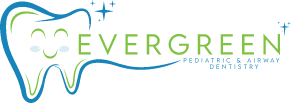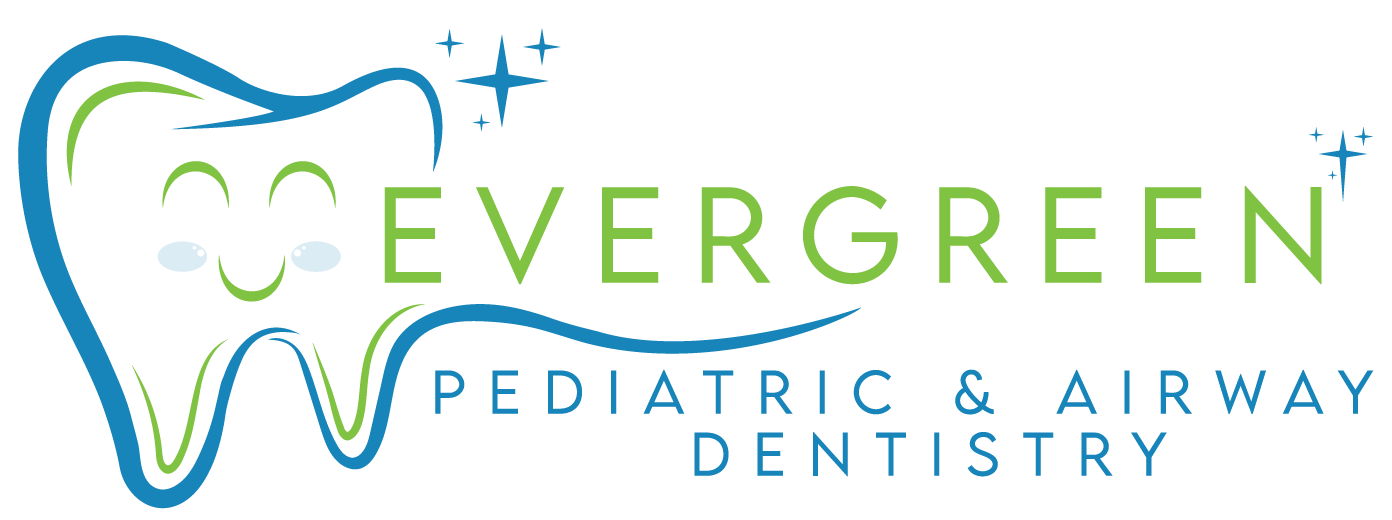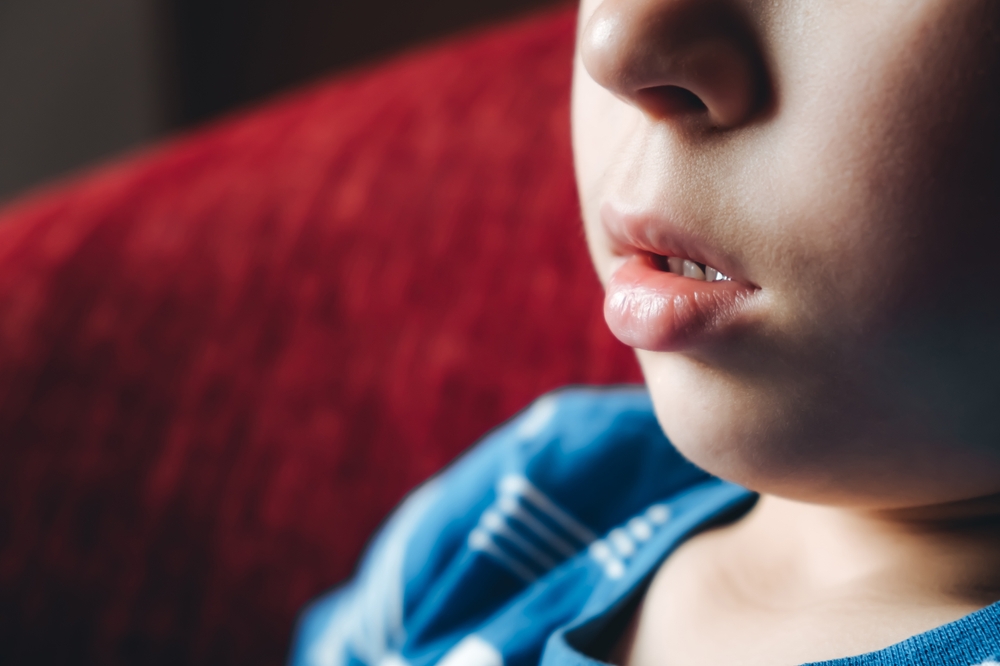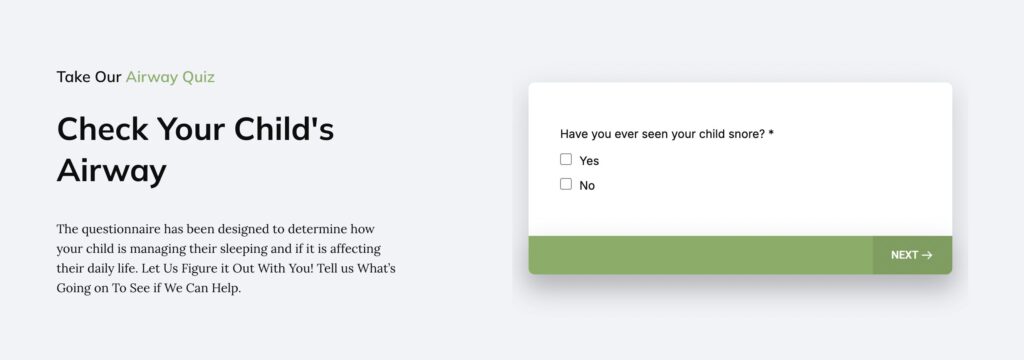You ever have those days when you see your child is fighting to keep their eyes open, and a big yawn sneaks up on them? That was me as a kid—always tired, always mouth-breathing, and loud snoring every night. My parents must have wondered if I’d ever sleep without sounding like a train.
So, what exactly is mouth breathing? It’s pretty much what it sounds like—breathing through your mouth instead of your nose. It’s super common, especially with kids. Sometimes it’s just a habit, but other times it’s due to stuff like allergies, large tonsils, or issues with how the jaw develops.
Why Do We Mouth Breathe?
You might be thinking, “Okay, I get that mouth breathing can mess with sleep, but why do people do it in the first place?” Good question!
For a lot of people, it all starts with a narrow nasal airway. When your nasal passages are too small, breathing through your nose feels like sucking a milkshake through one of those tiny straws—almost impossible! So, the body adapts by breathing through the mouth to get more air. Before you know it, mouth breathing becomes a hard habit to break.
But here’s the kicker—mouth breathing can actually make things worse over time. When you consistently breathe through your mouth, your jaws and airway don’t develop properly. This leads to a narrower airway, and that’s when sleep apnea comes into play. The body wasn’t built to breathe through the mouth long-term, and over time, it can lead to serious sleep issues.
Allergies, large tonsils, and other problems might trigger mouth breathing, but the root of the issue often traces back to how the nasal cavity and jaw developed. And that’s when sleep apnea symptoms start showing up.
The Not-So-Obvious Airway & Sleep Apnea Link
Alright, snorers, listen up! If you or your children are constantly breathing through their mouth, it’s more than just an annoying habit—it could be a sign of something more serious. Mouth breathing isn’t just noisy; it’s a potential red flag for sleep apnea, a condition where your breathing repeatedly stops and starts throughout the night due to a blocked airway.
So, what’s really going on here? Well, when you breathe through your mouth, your tongue, jaw, and soft tissues can collapse backward, narrowing the airway. Think of it like trying to suck air through a flattened straw—every breath becomes a struggle. The body is forced to wake itself up just enough to gasp for air and keep breathing, but the sleep quality is destroyed in the process.
And here’s the thing: sleep apnea doesn’t just affect adults. Kids who are mouth breathers are at risk too. Their airways are smaller to begin with, and when combined with poor jaw development or swollen tonsils, it’s a recipe for disrupted sleep. Night after night, these brief pauses in breathing—called apneas—lead to fragmented sleep, even if they’re not waking up fully. The result? Constant fatigue, irritability, difficulty focusing, and long-term health risks.
Over time, untreated sleep apnea can wreak havoc on your child’s health. It increases their risk for serious conditions like heart disease, high blood pressure, diabetes, and even stroke. Plus, the constant exhaustion can make everyday tasks feel impossible, affecting their ability to concentrate, learn, and enjoy life. It’s not just about snoring—it’s about the quality of your child’s sleep and their overall health.
Mouth breathing is one of the biggest clues that sleep apnea might be at play, especially if paired with loud snoring, frequent waking, or persistent daytime drowsiness. Identifying and treating the issue early can make a world of difference. And the good news? There are solutions to tackle the root cause.
Dangers of Untreated Airway Issues
Now, airway problems might sound like no big deal, but it is! When your body doesn’t get enough oxygen during sleep, it can seriously affect your health. Here’s what untreated sleep apnea can lead to:
- Constant tiredness (even after a full night’s sleep)
- Trouble focusing (I struggled with school for a reason!)
- Higher risk of heart disease and stroke
- Increased chance of developing conditions like diabetes
Bottom line: good, quality sleep is essential for yours and your child’s health. And ignoring sleep apnea can lead to long-term problems.
Traditional Treatment Options
For years, CPAP machines have been the go-to treatment for sleep apnea. These machines keep your airway open by providing a constant flow of air while you sleep. But here’s the catch—you’re pretty much attached to that machine for life.
Oral Appliances – A Less Bulky Option
An alternative to CPAP is using a customized mouthpiece that slightly moves your jaw forward, which prevents your airway from collapsing. It’s less cumbersome than CPAP but can sometimes cause jaw discomfort. Plus, it still has to be worn every night.
Myofunctional Therapy: A Targeted Approach to Breathing
When it comes to addressing mouth breathing and breathing issues, one powerful treatment option that often gets overlooked is myofunctional therapy. Think of this therapy as a workout for the muscles in your face, mouth, and throat—just like you might go to the gym to strengthen your body, myofunctional therapy works to strengthen and retrain these vital muscles for better breathing.
So, how does it help? Well, many airway issues stem from improper muscle function in the mouth and throat. If the tongue rests in the wrong position or if the muscles in the jaw and throat are weak, it can cause the airway to collapse during sleep, leading to snoring or even more dangerous pauses in breathing, known as apneas. Over time, these disruptions prevent the body from getting the deep, restful sleep it needs.
Here’s where myofunctional therapy comes in. This non-invasive approach involves a series of targeted exercises designed to:
- Strengthen tongue posture: Teaching the tongue to rest in the proper position at the roof of the mouth helps keep the airway open.
- Improve swallowing patterns: Retraining swallowing habits ensures that the throat and surrounding muscles function properly, reducing the chances of airway collapse.
- Promote nasal breathing: Encouraging nose breathing instead of mouth breathing helps optimize airflow and supports overall oral health.
Myofunctional therapy can significantly reduce mouth breathing by addressing the root cause—poor muscle function. And the best part? It’s completely natural. When paired with other treatments like the Vivos system, the benefits are even more profound, giving you the potential for a lasting solution to your breathing and sleep troubles.
This therapy is suitable for both children and adults, making it an excellent option for families dealing with airway issues. It’s also a preventative measure, stopping problems before they get worse and improving overall health by promoting better breathing habits.
The Game-Changing Vivos Method
What if I told you there’s a treatment that could actually expand your airway permanently and help your child stop mouth breathing? That’s what the Vivos method does with custom-made removable oral appliances.
- It’s like giving your airway a makeover, but from the inside out.
- No masks, no machines—just a simple appliance worn mostly at night (naps count!).
- Vivos gradually expands your upper jaw and nasal passages, treating the root cause, not just the symptoms.
Here’s the best part—the Vivos method has been cleared by the FDA to treat airway related problems! It’s the only oral appliance with that level of approval, which is huge for those who want an all natural and effective treatment.
HealthyStart: A Gentle Solution for Better Breathing and Straighter Smiles
When it comes to treating airway issues in children, the HealthyStart system offers an innovative, non-invasive solution that doesn’t just improve breathing—it also promotes natural, straighter smiles without the need for braces. This treatment is specifically designed for children and focuses on correcting oral habits, addressing sleep-disordered breathing, and guiding proper jaw development as your child grows.
So, how does it work? HealthyStart uses a series of soft, comfortable oral appliances that your child wears at night or for a few hours during the day. These appliances gently guide the development of the jaws, open up the airway, and encourage the tongue to rest in the proper position. Here’s why that matters: many childhood airway issues stem from narrow jaws or misaligned teeth, which can block the airway and make it difficult to breathe during sleep.
The HealthyStart system is designed to:
- Promote proper jaw development: By guiding the growth of the upper and lower jaws, HealthyStart creates more space for the tongue and teeth, reducing airway obstruction.
- Encourage nasal breathing: Training the child to breathe through their nose rather than their mouth helps establish healthier breathing patterns.
- Prevent future orthodontic issues: As an added benefit, HealthyStart gradually aligns the teeth, reducing the need for braces or other invasive orthodontic treatments later in life.
- Improve sleep quality: By opening the airway and correcting breathing patterns, children experience deeper, more restful sleep, helping them wake up refreshed and energized.
This system isn’t just about creating straight teeth—it’s about ensuring your child develops a healthy airway that supports better sleep, focus, and overall well-being. Many children with sleep-disordered breathing suffer from symptoms like bedwetting, ADHD-like behavior, or chronic fatigue, but these are often the result of poor sleep quality caused by airway issues. HealthyStart helps resolve the root cause of these problems by addressing both the airway and the alignment of the teeth and jaws.
The beauty of HealthyStart is that it’s a gentle, natural approach. No painful braces, no harsh surgeries—just a comfortable, effective solution that works with your child’s growth to set them up for a lifetime of good breathing habits and a bright, confident smile. So if your child struggles with sleep, snoring, or crooked teeth, HealthyStart might be the perfect treatment to improve their health and happiness from an early age.
Take Control of Your Child’s Sleep
The path to restful, peaceful sleep doesn’t need to involve bulky machines or surgeries. With Vivos oral appliance therapy, you can finally put sleep apnea behind you and wake up feeling refreshed and energized again.
At Evergreen Pediatrics and Airway Dentistry, Dr. Susan Kim is at the forefront of offering this life-changing treatment. As a HealthyStart & Vivos-trained specialist, Dr. Susan has helped numerous patients rediscover the benefits of restful sleep and put an end to chronic fatigue and pediatric sleep apnea.
Act Now!
Every night, millions battle the struggles of sleep apnea—snoring, constant fatigue, and a higher risk of disease. But you don’t have to continue suffering.
At Evergreen Pediatrics and Airway Dentistry, Dr. Susan Kim offers Vivos oral appliance therapy, even for severe cases of sleep apnea. No more bulky machines or invasive surgeries!
- Consultation
- Custom Oral Appliance
- Life-Changing Relief
Take the first step toward better sleep and a brighter future. Schedule your consultation with Dr. Susan today at (425) 814-3196.
Evergreen Pediatric Dentistry
https://www.google.com/maps?cid=14720788683151219551
12910 Totem Lake Blvd NE #103, Kirkland, WA 98034, United States
(425) 814-3196
https://evergreenkidsdentist.com/





